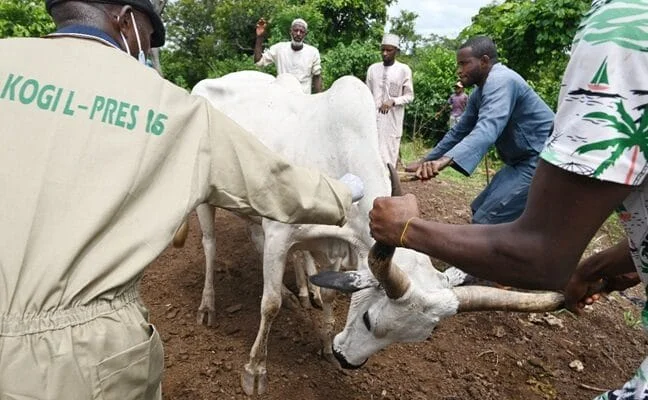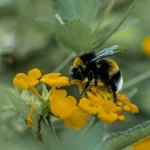For years, livestock farmers in Kogi State have battled with getting timely support and veterinary services to herders spread across its remote communities.
Alongside limited mobility, poor veterinary equipment and outdated extension services have impacted productivity, making it difficult for extension agents to access livestock keepers for timely health screening, training and provision of health services.
Veterinary services also remain behind when the herders migrate for grazing, exposing the animals to diseases that can be prevented.
Statistics show that livestock accounts for 8.1 % of the total GDP for agriculture in Nigeria, as farmers still lack access to vet professionals and even extension personnel.
In the North Central, where Kogi State is situated, one extension staff handles more than 1,000 farmers, exceeding the recommended staff ratio of 1:400.
The outcome of this imbalance is manifest in animal health, milk output and meat quality, especially in smallholder clusters that rely on traditional methods of herding and treatment.
To fill the gaps, the Kogi State Livestock Productivity and Resilience Support Project, or L-PRES, has rolled out an intervention that combines technology, logistics and support.
To enhance mobility, the project doled out 21 motorcycles to extension agents in each local government area.
The project has also rolled out 1,000 livestock extension manuals for training and awareness, along with veterinary medical kits that range from meat inspection equipment to ambulatory kits—all of which are designed to improve food safety, veterinary response and disease prevention.
Expanding national livestock productivity
The project, which is financed by the Federal Ministry of Livestock Development, aligns with the national efforts to enhance livestock value chains for meat, milk, and poultry production. Supported by the World Bank, it currently covers 19 states.
Marking a shift, the new distribution system ensures that farmers in distant regions are empowered through agents so that they can also benefit from advisory and veterinary services.
The digitalisation process for collecting data, using the KoboTool platform, also assists agents in collecting information in real time concerning livestock health, vaccination and productivity.
These technologies could be transformative for farmers, many of whom lose their livestock to diseases that could otherwise be prevented, such as foot and mouth disease or contagious bovine pleuropneumonia.
The new diagnostic and mobility equipment enables extension personnel to speed up vaccine delivery.
Kogi’s model stands out for its “Farmer-to-Farmer” extension framework, which allows seasoned farmers to train other farmers in their groups.
Confronting the hurdles
But experts are less optimistic, noting that gadgets and logistics are not enough. Sustaining the momentum will require continuous training, fair compensation of extension officials and a definite maintenance schedule for machinery.
Motorbikes, although extremely important, tend to break down, while digital innovations can also fail when internet connectivity and electricity remain patchy.
Another notable challenge is the perennial issue of accountability, which has resulted in the “ghost farmer” situation in which resources earmarked for farmers are misallocated. In response, state officials have promised to deploy the kits for public service.
Despite these limitations, the initiative marks a significant step toward building a more responsive livestock ecosystem. By improving the speed and scope of extension delivery, Kogi State is demonstrating a grassroots method for improving the local economy.
With continuous momentum, pairing mobility with training, monitoring, and digital innovation, the state’s livestock sector could become a backbone of food security and employment.
Summary not available at this time.






